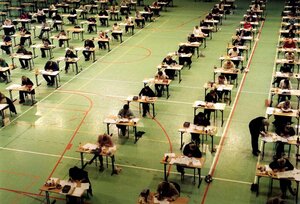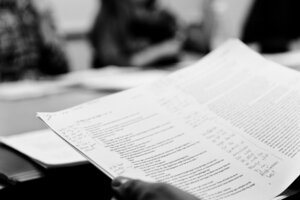Examination
Examination
Different types of examination are used in the department’s courses. See your course syllabus for information about the examination in your course.
Assignments to be handed in
Avoid copying the whole, or parts, of a text. Plan your studies so that you are not tempted to do so when pressed for time. The academic approach to work is built upon gathering ideas from others—and then it is important to make proper use of the techniques to inform where the thoughts/ideas came from. For example, giving the author’s name, title, page number, place of publication, and year of publication in a footnote regardless of whether you are working with a direct quote (with quotation marks) or have re-worded the text using your own words.
Feel free to cooperate with your fellow students in preparation of the exam – but the exam you hand in needs to be your own. Write in your own words, otherwise you can be accused of deceiving the teacher, and will be reported to the Disciplinary Board. You cannot use the same home-exam for different courses.
Directions for Exams
These directions are meant for home-exams, review assignments, theses, and other written assignments for the purpose of examination.
Formalities
If no other directions are given by the teacher, use size 12 font Times New Roman, or a corresponding font. Note that the font size can be different for different fonts.
Spacing should be 1.5.
If the teacher instructs you to write 10 pages, you can consider a full A4 page as containing between 350-400 words, or ca. 2600 characters (including spaces).
References to the course literature should always be given as the text progresses, and one suggestion is to use the Oxford referencing style. See the Libraries of the Joint Faculties of Humanities and Theology tips on Writing and Referencing:
The criteria for evaluating an assignment for examination
Relevance: The student should have answered the central question. The question should be answered via the suggestion of comparison, discussion, or exemplification.
Breadth: The student should have considered a reasonable number of areas, perspectives, and aspects in his/her answer. What is ‘reasonable’ depends on the question’s nature and assumes a coherent perspective for the question.
Depth: The student should be able to judge the data given in relation to the question and choose that which is most important. The answer should be in detail and exact in its most central point, or main thought.
Composition: The answer should be well-structured, logically understandable, and coherent. Long references and/or quotations should not be present. Avoid repetition.
Strategy: The questions are by nature ones that where there is rarely one ‘right’ or ‘wrong’ answer. Therefore, there can also be varying strategies to approach the question. Some strategies are more results-oriented, independent, and creative than others to make the main message in the answer to the question more apparent.
Analytical ability: It is highly valued that one can make personal reflections and value statements on the literature in relation to the question.
Central jargon: The judgement refers to the student’s ability to use common jargon in his/her answer in a correct manner.
Language in general: The text should be well-formulated and proofread. Even the text’s form, typography, has an importance and affects the readability. For example, clear headers, paragraphs, and punctuation are important to structure and readability.
Grades
Grades are not registered in LADOK until all obligatory parts of the course are done (including examination seminars and eventual assignments to be handed in).
The grade on an exam is given to the student within 15 working days from the time of examination.


